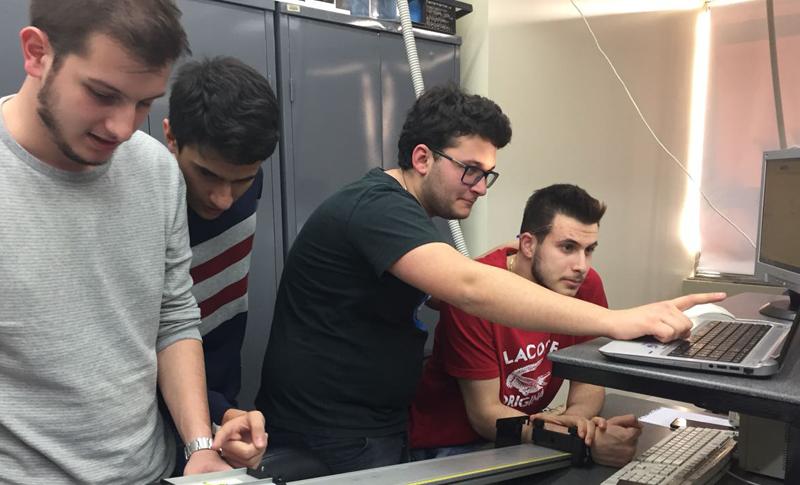LAU Launches New BS in Applied Physics

The LAU Department of Natural Sciences is launching a BS in Applied Physics in the fall of 2018, which will allow students to pursue a variety of disciplines including medicine.
“The department of natural sciences offers successful programs in biology, chemistry, and nutrition. The physics program will add a new dimension to the department and complete the range of scientific programs offered at LAU. The applied physics program will strengthen STEM (Science, Technology, Engineering, and Mathematics) education at LAU.” Assistant professor of Physics Jimmy Romanos said.
“Applied physics is directed to real-life application and intended for technological or practical use. It is a bridge between physics and other fields like Medicine, Engineering, Astronomy, Chemistry, Biology, and Environmental Sciences,” he added.
The new program will allow students to continue to medical school after completing three years in applied physics (pre-med physics). It is also targeted at a fraction of students who are interested in pure physics.
“LAU is moving toward a research-centered academic institution, and having an active research program in Physics, Astronomy, and other basic sciences will improve the visibility and ranking of the university,” Romanos said. Students will have the opportunity to work with faculty members on a variety of research topics, like nanotechnology, material science, and astronomy, among others.
Assistant Professor of Physics Nelly Mouawad offered a pragmatic perspective on the science. “Physics describes how things work around us and in the universe we live in. It is fundamental to all other natural sciences.” She highlighted the fact that students pursuing any natural science major “will need to have some physics background in order to understand how the system they study functions, and sometimes how their instrument or their experiment works.”
She said the program will allow students to “go back to the fundamentals, so if they are asked to solve a problem, it is as if they are dissecting it. They learn to analyze and to think in an independent way; they train their minds to think out of the box.” Consequently, students will develop skills that are applicable to different disciplines.
Indeed, the program is flexible compared to other programs. In addition to medical school, undergrads with a BS in Applied Physics can also acquire an MS in Engineering. The program also allows for a plethora of career paths, including intellectual property (patent law), teaching in schools, astronomy and space science, science and energy policies, and industry including sustainable energy, nanotechnology, materials development, petroleum industry, quantum information technology, medical instrumentation, and electronics.
“The world of a physicist with an undergraduate degree is wide and welcoming. Many industries such as petroleum, finance, software development and others search for physicists when they need problem solvers, and people with a diverse set of skills,” Mouawad said. Reflecting LAU’s unique student centeredness, the classes are designed to “nurture active learning and experiential learning, while using the latest technology and lab equipment.”
A fun fact for physics students, who have a passion for music, is that they can also pursue a career as DJs. “Physics can teach you the science of sound and how to break down beats and keep a tempo,” she said. Nature-loving students can also work in environmental studies, meteorology, geology, marine sciences, and perform the technical/applied side of work or the analysis.
The program – offered in both Beirut and Byblos – consists of 94 credits, which can be completed in three years by those entering as sophomores.
Courses include Classical Mechanics, Electricity and Magnetism, Thermodynamics, Modern Physics, Quantum Mechanics, Statistical Mechanics, and Solid State Physics.